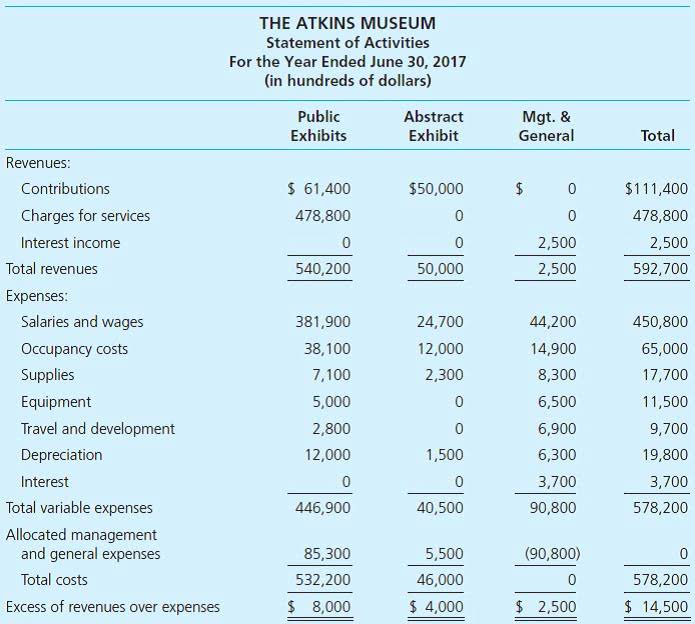
It’s intuitive enough for novice bookkeepers to learn but supports all the elements that a larger business would need, including payroll. Most small businesses need good accounting software, document management software, and CRM software. Your best bet is to find comprehensive software bookkeeping for ecommerce that can perform all three of these functions, or integrate seamlessly with existing platforms. While the accounting software you choose will depend on the individual needs of your small business, we recommend selecting one of the cloud-based accounting solutions from the list above.

Wave: Best Free Accounting and Invoicing Software for Companies Willing to Use Zapier for Ecommerce Integrations
- Each plan comes with a finance expert, automated transaction imports, P&L, balance sheet and cash flow statements.
- However, before you opt for free accounting software like Wave, be sure that it has all the features you need for your business.
- You select one, customize it by using the filter and display options provided, and let the software pour your company data into it.
- Before we look at the best accounting software for ecommerce businesses, though, there is one more vital factor to consider.
- Sage 50 Accounting—also sometimes known as Sage accounting or Sage business cloud accounting—is a massive small business accounting application that’s designed for desktop use.
- It provides a single, secure location to handle your company’s bills and invoices, reconcile bank statements, and control spending.
PrestaShop plans are similar to regular shared hosting plans, with the most affordable one starting at $4 a month and rising to $6 a month. All online store builder plans from Ionos include free email hosting for at least one email address and the ability to list at least 500 physical products in your store. Hostinger’s managed WooCommerce hosting starts at $4 a month, with renewal pricing as low as $9 a month for the most affordable plan.
Does Your Ecommerce Business Need Accounting Software?
Once you’ve made your choice, set up all your integrations, and automated as much as you can—relax. Let your bookkeeping software do the heavy lifting while you mind your online business. QuickBooks https://www.bookstime.com/articles/do-i-need-a-personal-accountant is best for those who see their business growing into a larger enterprise and don’t mind investing some time into learning the system or already have some experience with bookkeeping.
Simple, Secure Online Payments
Some accounting software providers charge for additional users beyond a set limit, which is an important point to keep in mind if many employees need access. A few vendors also offer bundles or add-ons, including timekeeping and payroll, for an additional monthly fee. Many e-commerce businesses find that a cookie-cutter solution just doesn’t cut it.
What are the benefits of ecommerce accounting?

However, if you want an easy-to-use but powerful accounting tool to help you scale up, this might be the best software for you. A free plan is available for businesses that earn up to $50,000 per year, with one user and one accountant. QuickBooks Online stands out for e-commerce because it can automatically look up sales tax and tell you how much you owe and when it’s due.
Maintaining Accurate and Tax-Compliant Records

Next, we have Wave, a basic (but completely free!) accounting software option with limited features. Accounting software alleviates this administrative burden by integrating with your seller platform and automatically importing transaction data into its system. These imports can make bookkeeping much faster while reducing the risk of any data-entry mistakes you might make while transferring over your data. That accurate data comes in handy in the unlikely event that you face an IRS audit. Depending on your online business, you could have tons of transactions to keep track of.
- Botkeeper is best for accounting firms that want to scale by automating bookkeeping tasks.
- Bookkeeping is the process of recording all your business’s financial transactions systematically.
- Striven also comes with automated invoicing and payroll features, which cater to retailers and servicemen alike, making financial management a breeze.
- It could also be the right accounting software for anyone running a product-focused online store.
- Think about what you need now and how you intend to grow when choosing the right accountant.
- Enter Sage and its open application programming interface (API), which allows software developers to create custom integrations and solutions.
- It’s an excellent choice for anyone who already uses other Zoho software and businesses that plan to grow.
Unlike with a brick-and-mortar store, inventory for ecommerce sellers is often stored off-site, in warehouses or distribution centers. Further complicating inventory management is multi-channel sales—your inventory management solution must “talk” to all your sales channels in order to prevent out of stock or other inventory issues. Now that you know more about bookkeeping solutions for ecommerce, take what you’ve learned and evaluate which option fits your business best.






